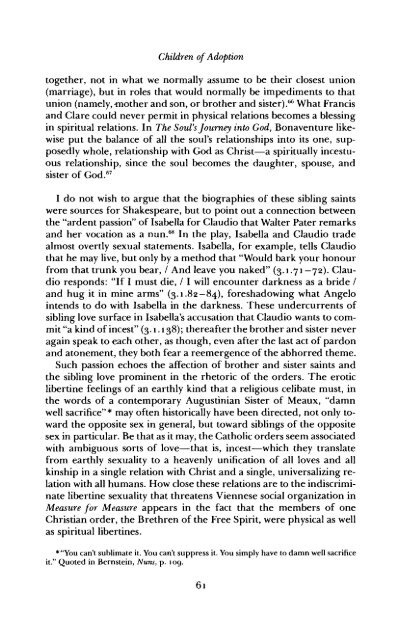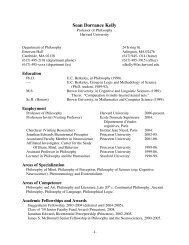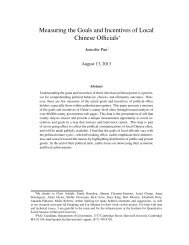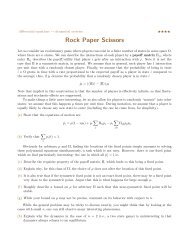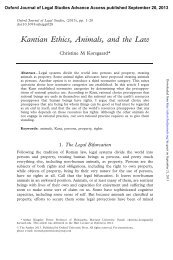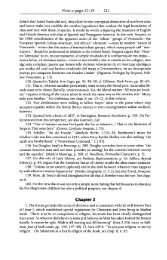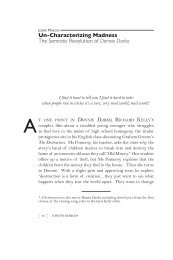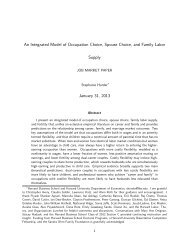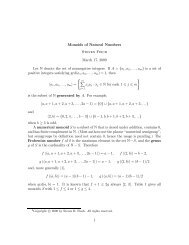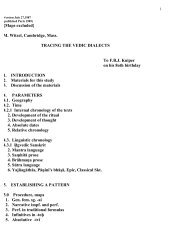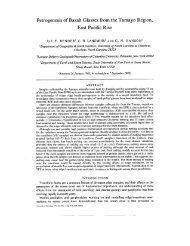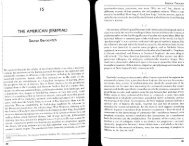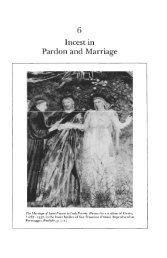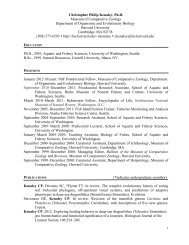Children of Adoption - People Fas Harvard
Children of Adoption - People Fas Harvard
Children of Adoption - People Fas Harvard
Create successful ePaper yourself
Turn your PDF publications into a flip-book with our unique Google optimized e-Paper software.
<strong>Children</strong> <strong>of</strong> <strong>Adoption</strong><br />
together, not in what we normally assume to be their closest union<br />
(marriage), but in roles that would normally be impediments to that<br />
union (namely, mother and son, or brother and sister).% What Francis<br />
and Clare could never permit in physical relations becomes a blessing<br />
in spiritual relations. In The Soul3 Journey into God, Bonaventure like-<br />
wise put the balance <strong>of</strong> all the soul's relationships into its one, sup-<br />
posedly whole, relationship with God as Christ-a spiritually incestu-<br />
ous relationship, since the soul becomes the daughter, spouse, and<br />
sister <strong>of</strong> God.67<br />
I do not wish to argue that the biographies <strong>of</strong> these sibling saints<br />
were sources for Shakespeare, but to point out a connection between<br />
the "ardent passion" <strong>of</strong> Isabella for Claudio that Walter Pater remarks<br />
and her vocation as a nun.68 In the play, Isabella and Claudio trade<br />
almost overtly sexual statements. Isabella, for example, tells Claudio<br />
that he may live, but only by a method that "Would bark your honour<br />
from that trunk you bear, I And leave you naked" (3.1.71 -72). Clau-<br />
dio responds: "If I must die, I I will encounter darkness as a bride /<br />
and hug it in mine arms" (3.1.82 -84), foreshadowing what Angelo<br />
intends to do with Isabella in the darkness. These undercurrents <strong>of</strong><br />
sibling love surface in Isabella's accusation that Claudio wants to com-<br />
mit "a kind <strong>of</strong> incest" (3.1.138); thereafter the brother and sister never<br />
again speak to each other, as though, even after the last act <strong>of</strong> pardon<br />
and atonement, they both fear a reemergence <strong>of</strong> the abhorred theme.<br />
Such passion echoes the affection <strong>of</strong> brother and sister saints and<br />
the sibling love prominent in the rhetoric <strong>of</strong> the orders. The erotic<br />
libertine feelings <strong>of</strong> an earthly kind that a religious celibate must, in<br />
the words <strong>of</strong> a contemporary Augustinian Sister <strong>of</strong> Meaux, "damn<br />
well sacrificem* may <strong>of</strong>ten historically have been directed, not only to-<br />
ward the opposite sex in general, but toward siblings <strong>of</strong> the opposite<br />
sex in particular. Be that as it may, the Catholic orders seem associated<br />
with ambiguous sorts <strong>of</strong> love-that is, incest-which they translate<br />
from earthly sexuality to a heavenly unification <strong>of</strong> all loves and all<br />
kinship in a single relation with Christ and a single, universalizing re-<br />
lation with all humans. How close these relations are to the indiscrimi-<br />
nate libertine sexuality that threatens Viennese social organization in<br />
Measure for Measure appears in the fact that the members <strong>of</strong> one<br />
Christian order, the Brethren <strong>of</strong> the Free Spirit, were physical as well<br />
as spiritual libertines.<br />
*"You can't sublimate it. You can't suppress it. You simply have to damn well sacrifice<br />
it." Quoted in Bernstein, Nuns, p. log.


